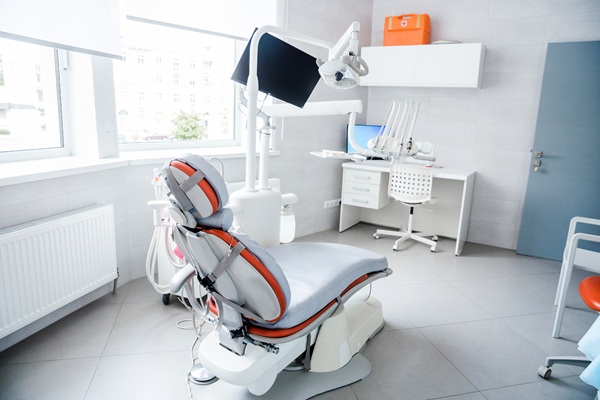Flexible Spending Accounts Austin, TX
Today, many employers offer a flexible spending account (FSA) as part of their benefits packages. Employees can use these funds to set aside money from each paycheck. FSAs cover most out-of-pocket health care expenses, including dental treatments.
Austin Lifetime Dental in Austin and the surrounding area accepts FSAs. Our team works with your employer to confirm coverage. If you are confused about using your FSA, we can help you. Do not let your FSA expire. Call us at (512) 387-9049 to learn how to make the most of your funds.
How FSAs Work
FSAs help bridge any gaps that other health insurance plans leave behind by using tax-free funds to cover out-of-pocket healthcare expenses. At times, they can even help replace a traditional employer-provided health insurance plan. According to Investopedia, funds contributed to an FSA are deducted from the earnings before taxes, thus lowering one's overall taxable income. Consequently, regularly contributing to an FSA may reduce one's annual tax liability.
FSAs can also help supplement or replace a traditional employer-sponsored healthcare plan. In either case, the FSA's main purpose is to cover out-of-pocket healthcare expenses. These funds can go towards coinsurance, copayments, deductibles, and some prescription and over-the-counter drugs. FSAs can sometimes even go towards medical devices, such as crutches.
“FSAs can also help supplement or replace a traditional employer-sponsored healthcare plan.”
The Pros and Cons of an FSA
Tax savings represent the main benefit of an FSA. Since the funds are removed before taxes, employees have a lower taxable income. Some employees find that an FSA increases their take-home pay. The funds in an FSA are available at all times, with few restrictions. Most FSAs are linked to a debit card for added convenience. Patients can then use their FSA debit card at their doctor, dentist, or pharmacy. Patients usually do not need pre-approval or to do other paperwork.
However, employees can only contribute a certain amount of money each year. For most employees, the limit is $2,750 per year. Spouses can also contribute an equal amount to their own FSA. Additionally, FSA funds are tied to an employer. If an employee changes jobs, they cannot keep their current FSA
FSAs funds are "use it or lose it." At the end of the year, employees can roll over up to $500. The remaining unused funds are forfeited to the employer. Employees must keep an eye on their FSA balance. It's up to each patient to ensure that they use their funds before they expire.
Many patients confuse FSAs with health savings accounts (HSAs). These programs are similar, but they have a few key differences. With an FSA, employees can use their funds as a line of credit. With HSAs, employees can only spend money they have already saved. HSAs are also transferrable: employees can keep their HSAs if they change jobs.
“The funds in an FSA are available at all times, with few restrictions.”
How to Save Money With an FSA
With an FSA, employees can set aside money from their paycheck. Enrollment is available for a limited time at most workplaces. One's employer can provide more details about where, when, and how to sign up for an FSA.
During the enrollment period, employees determine how much money they plan to save. Choosing the FSA budget can be tricky. If an employee underestimates how much money they need, they might lose out on tax savings. If they overestimate, they may lose the money. The exact amount one needs will depend on their family's unique circumstances.
After enrollment, the money is deducted from each paycheck. Employees have until March 15 of the following year to use their funds. Keep in mind that unused funds will expire. It's the employee's responsibility to use their funds before the deadline.
“One’s employer can provide more details about where, when, and how to sign up for an FSA.”
Check out what others are saying about our dental services on Yelp: Flexible Spending Accounts in Austin, TX
How to Use FSA Funds
Patients can use their FSA to cover most dental expenses, including routine care. But not all procedures and treatments are eligible. Before scheduling a dental procedure, patients should talk to their employer and plan provider. Cosmetic procedures, including cosmetic orthodontics, are usually not covered under an FSA. However, if a patient needs orthodontics for medical purposes, they might be allowed to use their FSA funds. Our dental team can work with your plan provider to determine coverage.
“Cosmetic procedures, including cosmetic orthodontics, are usually not covered under an FSA.”
Questions Answered on This Page
Q. What are the benefits of an FSA?
Q. How do I sign up for an FSA?
Q. Can I use my FSA to pay for dental care?
Q. Where can I use my FSA funds?
People Also Ask
Q. Is dental insurance worth it?
Q. How often should someone have a dental checkup?
Q. How can someone determine what type of dentist or service they need?
Q. Do HSAs cover dental services?
Q. How can I find dental insurance that takes my ideal dentist?
Q. Who is the billing specialist?
Q. What is the importance of having a routine dental checkup?
What Treatments and Procedures Are Eligible
FSAs cover a wide range of dental services, including:
- Routine cleanings
- Filling, sealants, and extractions
- Diagnostic and preventive care
- Gum disease treatment
- Oral surgery
- Crowns, bridges, and dentures
Employees can also use their FSA funds for other health care expenses, such as:
- Prescription medications
- Medical and diagnostic devices
- Over-the-counter medications (with a doctor’s prescription)
- Copays
- Deductibles
- Coinsurance
- Eyeglasses
- Eye surgery
- Hearing aids
- Hospital expenses
FSA funds can go toward most preventive and diagnostic procedures, though some exclusions may apply. One's employer and plan provider can provide details about specific rules and exemptions.
“FSA funds can go toward most preventive and diagnostic procedures.”
Frequently Asked Questions
Q. What is the maximum amount I can put in my flexible spending account?
A. While maximum annual contributions may vary, the most you can put into a medical FSA is $2,750. The yearly maximum for a dependent care FSA is $5,000. Ask your employer for more details about your policy.
Q. Do my FSA funds roll over?
A. It depends on your employer. If you have money left in your flexible spending account at the end of the year, your employer may give you 2.5 more months to spend the money. They may also allow you to carry over up to $500 for the next plan year.
Q. What is the difference between a medical FSA and a dependent care FSA?
A. As the names suggest, medical FSAs are reserved for medical expenses only. Dependent care FSAs are reserved for dependent care services. The latter include before or after-school programs, child or adult daycare, preschool, and summer day camp.
Q. What is the difference between an FSA and an HSA?
A. Flexible spending accounts (FSAs) are owned by an employer. Health savings accounts (HSAs) are controlled by an individual. However, both allow employees to save on their medical expenses with pre-tax money.
Q. Are FSAs the same as HRAs?
A. No. Flexible spending accounts (FSAs) are funded by the employee and sometimes by the employer. In contrast, HRAs are funded only by the employer. However, patients can have both accounts at once.
Dental Terminology
Call Us Today
An FSA can help you set aside health care funds and save money at tax time. If your health care plan doesn't cover out-of-pocket dental expenses, an FSA might be able to help. But it's your job to make sure that your funds don't expire. If you don't use your FSA funds each year, you may forfeit the money.
Let Austin Lifetime Dental in Austin help you put your FSA to use. Call us at 512-387-9049 to learn more about applying FSA funds toward dental care.
Helpful Related Links
- American Dental Association (ADA). Glossary of Dental Clinical Terms. 2025
- American Academy of Cosmetic Dentistry® (AACD). Home Page. 2025
- WebMD. WebMD’s Oral Care Guide. 2025
About our business and website security
- Austin Lifetime Dental was established in 2022.
- We accept the following payment methods: American Express, Cash, Check, Discover, MasterCard, and Visa
- We serve patients from the following counties: Travis County
- We serve patients from the following cities: Austin, West Lake Hills, Barton Creek, Rollingwood, Lost Creek, Tarrytown, Hyde Park, Oak Hill, Austin Lake Hills and Bee Cave
- Norton Safe Web. View Details
- Trend Micro Site Safety Center. View Details
Back to top of Flexible Spending Accounts










